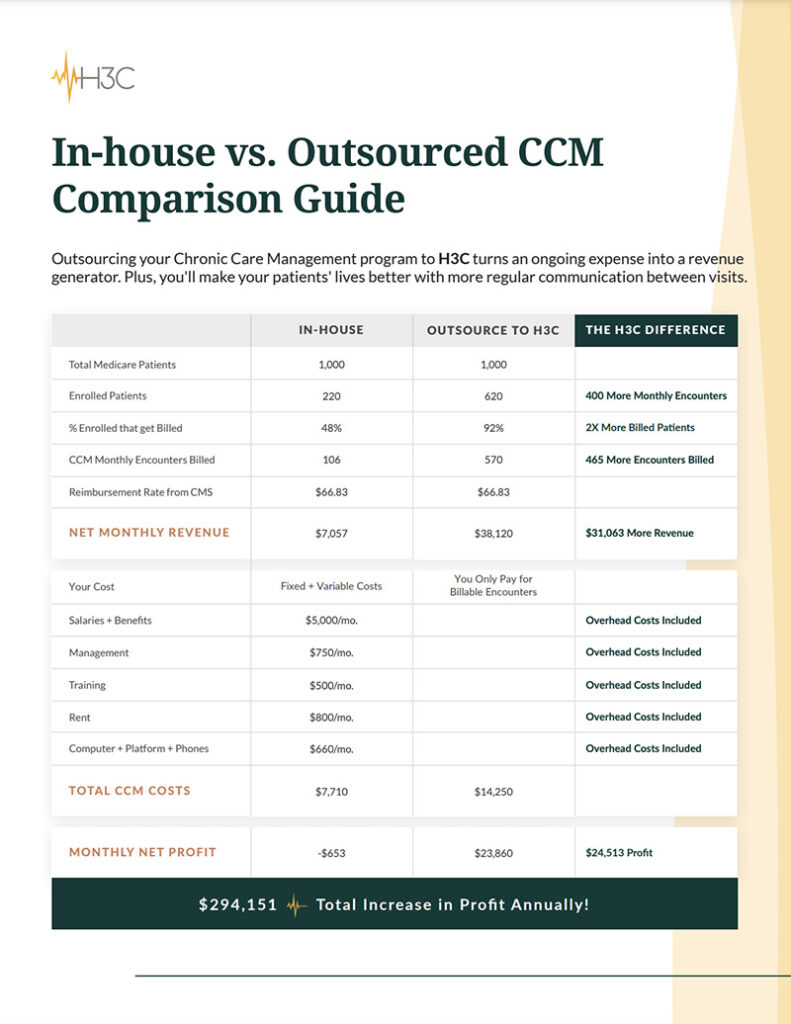Chronic conditions are often treated through regimented medical plans that do not require frequent clinical visits. Long-term conditions justify self-care for willing and capable patients, but it certainly helps to communicate regularly and track patient status.
An open line of communication helps to identify red flags and to simply continue education and reinforcement of best self-care practices while maintaining updated files for the clinic when visits do occur.
What is chronic care disease self-management?
We’ve established the broad scope of chronic care management, but it’s not a simple matter of handing off the reins to patients. Chronic conditions require a disciplined approach to administering medication and monitoring symptoms, all of which fall on the patient in self-care scenarios. Patients are tasked with:
- Filling and administering prescriptions
- Implementing other prescribed treatments
- Monitoring changes in conditions
- Recording and journaling conditions for reference (ideally)
- Continuing education and adjusting lifestyle based on recommendations (diet, exercise, etc.)
Self-care patients are able to manage their chronic conditions at home by utilizing provider tools like medication schedules, documentation, and best practices for self-care. While the basic tasks of self-care are covered, it should never fall wholly on the patient to monitor their condition.
The first-person patient perspective makes it possible to miss critical signs that clinical visits or adjustments to the routine are needed. At the same time, clinical visits are not necessary for daily care. Using a mediary for support without the need for so many physical visits is the perfect solution to monitoring and supporting self-care patients.
How CCM support benefits patient populations
CCM partners fall into the suite of tools available for better self-care management. The CCM model plays a valuable role in self-care diligence and practice reinforcement for many patients.
Self-care is a discipline, and it leaves room for human error or misjudgement. Regular contact with a CCM representative reduces the error and serves to keep things on track. From adherence to care plans to tracking progress and identifying emergencies, CCM keeps a finger on the pulse of self-care patient populations.
Adherence to medical plans
Following medical plans and medication administration instructions is critical for self-care patients. The plans are designed to treat one or more chronic conditions, and without adherence, symptoms of the conditions can worsen.
CCM representatives can regularly contact patients to discuss their plans while reinforcing the need to remain disciplined. Ultimately, the process delivers:
- Better quality of life
- Fewer hospital visits
- Consistency in application of medical plans
- Reassurance in the process
Inserting chronic care management into the process makes patients feel supported, and it really helps when they have a regular point of contact to talk through issues and check in. With a little help, patients gain confidence in the process and stay on track by taking an active role in their care management.
How CCM can support clinics through self-care
From the clinic perspective, utilizing a trusted CCM partner or in-house program to maintain self-care patient contact serves a number of purposes. Communicating, building trust with patients, and identifying emergencies are all within the scope of CCM. Saving on time and costs while delivering top-quality care and service is also a major benefit.
The primary role of CCM for self-care patients includes:
- Answering patient questions
- Continuing education as directed
- Reinforcing importance of following the medical plan
- Recording and communicating issues to the clinic
For emergencies, patients often resist or deny symptoms that should be referred for visits and even emergency visits. In some emergency cases, coherence is minimalized and the decision-making abilities of patients are compromised.
When a CCM company is using a select group of callers for consistency and rapport, however, those callers can receive information about condition changes that are prioritized and referred back to the clinic or directly to emergency services in extreme cases.
Overall, reinforcing medical plans and empowering self-care patients through education and quality lines of communication can help patients become more proactive in their care, rather than being reactive.
Driving quality measures for clinics
Every clinic uses quality measures for internal reporting and compliance for external standardized programs. Tracking medication adherence, quality of care, and a number of other metrics helps the clinic provide the best possible care.
For in-clinic patients, processing these metrics is straightforward, but for self-care populations, self-reporting is not common. However, CCM intermediaries can support the mission of driving and tracking quality measures.
With support from the clinic and H3C’s CCM program, self-managed chronic care patients can better adhere to medical plans and improve their quality of life without added burden on the clinic. Give your self-care patient populations the support they deserve by getting in touch with H3C today.
Examples of self-management could include:
- Medication compliance
- Following your prescribed diet and/or exercise plan
- Taking regular vitals
- Monitoring any changes in conditions
- Improve quality of life
- Prevent co-morbidities and help the patient prevent their condition from worsening
- Reduce the frequency of hospitalizations





